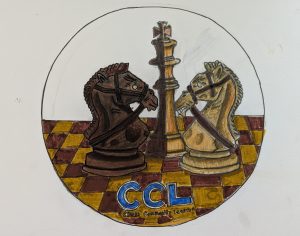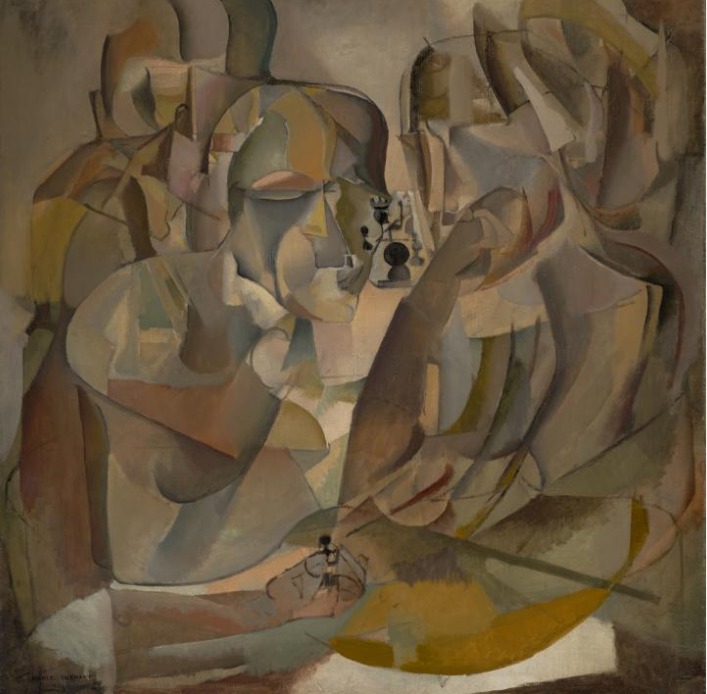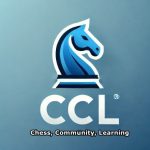Chess, Community and Learning
Alan's Ramblings

Alan’s health/coaching schedule - 2/18
- My surgery was a month ago, and I believe that I am in as good health as should be expected.
- I start both chemo and immunotherapy on 3/2. I am scheduled to do chemo for 6 months, and I will be taking immuno for a year, both every two weeks. Since I have never been through this, I am unclear on how I am going to feel, but most people take the chemo week off and work on the 2nd week. That is my plan, and I updated my calendar to reflect it. My treatments are on Mondays, so I tentatively plan to work every other Monday through Sunday.
- For March, it will look like:
today-3/1 giving lessons
3/2-3/8 treatment
3/9-3/15 giving lessons
3/16-3/22 treatment
3/23-3/29 giving lessons - I have some flexibility in my schedule, so if you can’t find a spot, call me (614) 561-2718.
- With the exception of exceptions, I am not taking on any new students.
- My white blood cell count will be low, so please do not come for your lesson if you are not feeling well.
- If this process is unacceptable to you, please feel free to contact Jeff to arrange for new or additional coaches. If you are only taking lessons with me, it would be prudent to at least get a 2nd coach. In CCL, the kids always come first.
What Is Wrong With Fascism?
Fascism is dangerous because it concentrates power in the hands of a single leader or ruling group while crushing dissent, independent thought, and basic human rights. It thrives on fear, division, and scapegoating, convincing people that their problems are caused by “outsiders” or political enemies rather than by real systemic issues. Under fascist systems, the free press erodes, elections lose meaning, and loyalty is valued more than truth or competence. Violence and intimidation are often used to silence critics, and minorities are stripped of protections, dignity, and sometimes their lives. History shows that fascism doesn’t just limit freedom — it corrodes institutions, normalizes cruelty, and leaves societies poorer, more isolated, and morally damaged long after the regime falls.
One of the most troubling aspects of authoritarian movements is that they rarely announce themselves clearly. They grow gradually, often wrapped in patriotic language, promises of strength, or claims of restoring order. People may support them not because they want oppression, but because they are afraid, frustrated, or feel left behind. That is why it is so important to pay attention to patterns rather than personalities — attacks on the press, efforts to weaken checks and balances, dehumanizing language toward groups of people, and the idea that loyalty to a leader matters more than the rule of law.
I am near the end of my life, and the lessons of history feel very personal to me. I was born just a few years after the fall of Hitler’s regime. The stories from that time shaped my childhood and my understanding of how quickly a society can lose its moral footing. The Holocaust murdered six million Jews and millions of others — Roma, disabled people, political opponents, prisoners of war, and many more — all targeted because they were labeled as lesser or dangerous. Those atrocities did not begin with death camps; they began with propaganda, fear, and the gradual stripping away of rights and humanity.
Because of that history, I believe it is essential to question any government, any party, any leader — when we see signs of intolerance, dehumanization, or disregard for democratic norms. This is not about blind loyalty to one political side or hatred of another. It is about principles: human dignity, equal protection under the law, freedom of thought, and the responsibility of citizens to stay informed and think for themselves.
My years working in the prison system gave me a close view of how manipulation, fear, and unchecked authority can affect human behavior. Those experiences made me especially sensitive to the ways power can be abused when there are too few safeguards and too little accountability. That perspective shapes how I see the world today.
I am sharing these thoughts not to tell anyone what to believe, but to explain why I cannot remain silent. You may see things differently, and that is your right. But I hope everyone will carefully examine the evidence, listen to a range of viewpoints, and resist the comfort of staying in an echo chamber. Democracies depend not on perfect agreement, but on citizens who are willing to think critically, defend the rights of others, and speak up when they believe something is wrong.
These are my beliefs, shaped by history and experience. You should follow your own conscience — but please, make sure it is informed, thoughtful, and guided by respect for the humanity of all people.
Some thoughts on life:
1/19/2025
Prodigy
9/15/2025
A prodigy is a child who demonstrates skills, abilities, or achievements at the level of a highly trained adult in a particular field. There are four areas commonly accepted as being prodigious: chess, math, music, and art. You often find a person who is a prodigy in one area to have excellent skills in one of these other areas. It would be challenging to be a prodigy in more than one area simply due to time constraints. CCL chess players are often very talented in math or music; however, I had not seen the crossover to art until now. Welcome, Vikrant, who shows prodigious activity in chess and art. Please go to our blog for a presentation of Vikrant's work.
The most famous person who crossed these two fields was Marcel Duchamp (1887-1968).
Art: One of the most influential modern artists, pioneering conceptual art (Nude Descending a Staircase, "readymades").
Chess: Master-strength player; represented France in Chess Olympiads. Eventually gave up painting almost entirely to devote himself to chess.
I have a beautiful book that covers both his chess games and his paintings, titled "Marcel Duchamp: The Art of Chess." If you are interested, you can borrow it from me. An interesting Ducamp quote from the book is, "I have come to the conclusion that while all artists are not chess players, all chess players are artists."
Below is the Duchamp painting "Portrait of Chess Players"

Follow-up on the talk on Delay of Gratification
7/20/2025
If you want to research these topics on your own, search on YouTube in the following order:
-
- Delay of Gratification
- Operant Conditioning
- Shaping Psychology
My talk focused on the concept of Delay of Gratification (DG), which involves postponing short-term goals for more rewarding long-term ones. DG is not only at the heart of what it takes to become a great chess player, but it is also critical to most of our functions as adults. To me, this is a fundamental concept, and it serves as an excellent example of how chess develops us as individuals.
Although we see this as the correct path to follow, most experts believe that our instincts strongly lead us toward immediate gratification. There are operant reasons as well, that we did not discuss. My dog has almost no DG, and I have little more. The saving grace is that we can improve our DG, and we can use chess as a tool. Now the question is: How do we strengthen our DG?
We are now starting to split into multiple potential paths. One route that makes sense to me is Shaping. Shaping is from the area in Behavioral Science referred to as Operant Conditioning. It is simply giving positive reinforcement in steps small enough to be handled well. Positive reinforcement is generally the most effective approach to follow. We discussed these topics on Sunday, and I recommend watching the YouTube videos mentioned earlier for a clearer perspective.
I hope that this adds some clarity to last Sunday's talk.
On Good Day Columbus with Mehmet
July 7, 2025
In honor of Mehmet, I supported him during a TV interview.
https://myfox28columbus.com/news/local/chess-tournament-championship-mehmet-yilanli-international-national
An Interview with me by Kathy Lin from CCA
June 26, 2025
There is a description of how we got from the old CCL to CCL V.2, as well as my philosophy on chess playing. https://www.youtube.com/watch?v=tIYSHSKP2eY
My reaction to Ladecky's graduation speech.
My main takeaway from Ledecky's speech was to focus on the process, not the goals. The goals that we achieve are just snapshots in time; it is the processes that we follow that get us there. It is a paradox, but the more we focus on the process and the less we focus on our goals, the more likely we are to reach our goals. When we reach our defined goal, we can often feel empty in a short time, as it turns out that our true love is the process, not the goal itself.
Why do you want your children to play chess and become professional chess players? If that is the case, I might be the first person at the door trying to stop your child from getting through. A professional chess player has a hard life with limited rewards. If you can become a professional chess player, you can be almost anything you want.
It is in the chess world that we develop the skills necessary to be successful in other endeavors. These include learning the relationship between hard work and success, improving self-discipline, developing the ability to learn from both success and failure, and enhancing memory, critical thinking, focus, concentration, emotional control, long-term planning, self-concept, and other key skills. In other words, the chess world is a microcosm of the broader world, where we can develop the skills to face adulthood within a safe and controlled environment.
While athletics can improve your physical abilities, chess develops your intellect. It's one of the few games that makes you smarter, tougher, and more self-aware — if you take it seriously.
We should focus on the process rather than the goals, as the goals are merely a natural outcome of the process.
My thoughts on a suggested progression path in CCL chess instruction that starts with me as the coach.
I have given much thought to the optimized progression path. There will always be variance, but this is how it currently appears to me:
1) My students work primarily with me until they get about 1300 strength.
2) Then they start splitting time between me and a higher-end coach.
3) Once the student finds consistent value in the higher-end coach, we move to a mentorship (if a good relationship exists between the coach and student).
I need to define what I will do as a chess mentor, a new CCL service. A chess mentor is a well-known role in some top programs. I will meet with the student approximately 1-4 times per year, and the focus will, at least in part, be on aspects of chess that do not involve the movement of pieces. My history in behavioral science will be helpful.
Above is a directional statement, and nothing is set in stone.
======================================================================
This stream is a compilation of three posts I shared in the CCL WhatsApp Group, all of which relate to how to approach a chess game.
Here are some thoughts on focus: Recently, I noticed that many kids are trying too hard in tournament games. Do not overlook that competitive chess can significantly strain your body, even in young, active children. So, the idea that you should consistently perform at your hardest throughout a tournament game seems ludicrous. These systems (e.g., attention span) break down at different times and replenish through rest. We don't have much time to rest in a game, but allowing some time is beneficial. Focusing on something else is good when it is our opponent's turn to move. I often close my eyes and meditate, which is probably considered old-fashioned. Focus is a valuable asset in chess and can be developed.
Why does trying to win lower our chances of winning?
In chess, as in life, there are things we can control and those we cannot. Winning is not something we can control; many factors, such as our health, the play of our opponent, and luck, are beyond our control. We have control over many factors that increase our likelihood of winning, and by focusing on these, our chances of success improve. Examples of these include our study and practice habits, our nutrition, our sleep, and our appropriate focus at the board (to be discussed in a later talk). Trying to do something out of our control produces a great deal of stress. When examining the relationship between stress and performance, a standard bell curve is observed, where increasing stress levels initially improve performance until they eventually lower it. The nature of chess tournaments has already put most of us at the peak of this curve, and additional stress only lowers our performance. Professional chess players typically operate at a high energy level while reducing their stress levels, which, on the surface, seems like a conflicting goal. Winning happens when we let go of the need to win and instead focus on playing the game well.
Although with the best intentions, I have often seen well-meaning parents press their children to win, a technique that is only likely to produce more failure. I have never met a child who didn't want to win, although I have met many children who do not want to take the necessary steps to increase their chances of winning. The best is to shift from "I must win" to "I will perform at my best and let winning be a byproduct."
This document is the third and last installment on approaching a chess game. I posted these notes in Alan's Ramblings in the Community section of our website in case anyone wishes to refer to them later.
In sports, including chess, there is an ideal state of mind where we are fully absorbed in the game, and everything else seems to fade away. Time becomes obscure in this state of mind, and intuitive ideas come to us more easily. This mental state is often called a flow state or being 'in the zone.'
Professional chess players employ various techniques to optimize this flow state. Examining all of these techniques is beyond the scope of this small document. Instead, I will give my personal view on this subject.
When we reach this state, we become lost in our position, and the only thing on our minds is the position in front of us. All chess players have had this experience, but the challenge is maximizing its frequency. Our brain can only have one thought at a time; multitasking our thoughts is an illusion created by quickly changing from one thought to another. When we think about anything other than the task at hand, we are moving out of our zone; common problem thoughts include those related to our ratings, results, and the opinions of others. We can challenge the rationality of these thoughts. Still, perhaps the easiest approach is to recognize that they interfere with our performance and calmly try to refocus on the task at hand. I have often seen a player lose a game by a blunder. Instead of accepting their fallibility, they replay issues related to that failure during their next game, drawing their attention away from the position and often blundering again.
With this note, I will fade into the background, my preferred state of being.
No group will be complete without some elderly man rambling about his observations.
